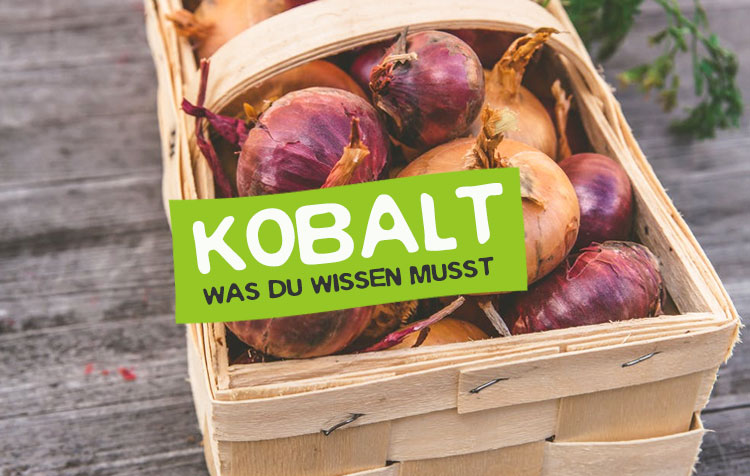You want to learn about calcium? Then you have come to the right place. I will explain everything you need to know about the quantity element calcium in this article. From a clear profile, about type, physiological importance, daily requirement, overdose and deficiency, to food and supplements. Finally, there is special information for vegans and vegetarians.
Here is in advance a short Overview for you:
Notice: This article is not a substitute for medical advice, but only provides general information about calcium. Please consult your doctor if you feel unwell or want to prevent health problems with medical care.
Calcium PROFILE AT A GLANCE
Assignment: Quantity element
Synonyms: Calcium, abbreviation in the periodic table Ca
Important for: Mineralization of bones and teeth, blood clotting, muscle contraction
Daily requirement: 600-1000 milligrams a day from the age of 19.1,2
Overdose: Upper Limit 2,500 milligrams per day3
Deficiency symptoms: including muscle cramps, tingling in arms and hands, diarrhea
Food: Sesame seeds, (calcium-rich) mineral water, almonds, kale
Nutritional supplement: mostly not necessary, if necessary as powder, tablets or capsules
HOW CAN I ADMIT calcium optimally?
Particularly important in calcium intake is Vitamin D. The sun vitamin ensures that calcium can be absorbed in the intestine. The higher your vitamin D intake, the more calcium absorption increases.4 Thus, with regard to calcium absorption, vitamin D supplementation may be useful.
In addition to vitamin D intake, absorption of the nutrient also depends on the food itself, as well as the amount of calcium per meal. For example, absorption decreases if a meal contains a lot of calcium.5 That's why it can be helpful to drink a calcium-rich mineral water, as you'll be absorbing calcium throughout the day.
Just like Iron or Zinc optimize Organic acids also the absorption of calcium. Corresponding acids can be, for example, citric acid from raspberries, peppers or citrus fruits or lactic acid from (soy) yogurt, sauerkraut or sourdough bread.
Phytic and oxalic acid inhibit calcium absorption, but this is no reason to eliminate foods containing phytic or oxalic acids from the diet. Instead, it makes sense to reduce both acids with the right preparation method. Phytic acid can be reduced by soaking, sprouting, heating or fermenting. Oxalic acid is water-soluble, so you can boil spinach in water and then drain the water. However, you should not continue to use it, as it contains the dissolved oxalic acid.
Wie hoch ist der Tagesbedarf an Kalzium?
The reference values for daily calcium requirements have a range of approximately 600 to 1,000 mg per day. The reason for this is the fluctuating absorption rates. While the German Nutrition Society (DGE) rather generously recommends 1,000 mg per day for adults1, a study by Hunt & Johnson came up with 741 mg per day.6 The recommendation of NutritionFacts.org is even somewhat lower at 600 mg per day.2 According to the DGE, the calcium requirement for pregnant and breastfeeding women remains the same.1 The following table shows the recommended by the DGE Calcium requirements for children and adolescents to the overview:
| Children and teenagers | mg/day |
| 1 to under 4 years | 600 |
| 4 to under 7 years | 750 |
| 7 to under 10 years | 900 |
| 10 to under 13 years | 1100 |
| 13 to under 19 years | 1200 |
What functions does calcium support in the body?
Calcium is especially known for its influence on the Bone Health known. However, here it is very important to know that it alone has a limited impact on bone health and there are many other nutrients that are valuable for bone and teeth health. Some examples are magnesium, potassium, zinc, iron, selenium, copper, manganese, boron, silicon, vitamins B12, B9, B6, C, D and K, and some phytochemicals.7 In addition, calcium supports the body in other functions such as the Blood clotting, Muscle contraction or also at the Stabilization of cell membranes.
The Calcium functions short and to the point:
- Mineralization of bones and teeth
- Blood clotting
- Muscle contraction
- Stabilization of cell membranes
Is intoxication with calcium possible?
As mentioned in the fact sheet, the Tolerable Upper Intake Level (UL) for calcium is 2,500 mg per day.3 It is unlikely that you will be able to absorb such quantities of the nutrient through your diet. For example, you would have to eat one kilogram of almonds or one and a half kilograms of arugula. Even if you should exceed the limit from time to time, it would not be the end of the world.. It is simply important that you do not exceed the UL for an extended period of time.
When supplementing calcium, I recommend using a supplement that contains a maximum of 500 mg per daily dose. This will ensure that the toxic range is not reached.
As you can see in the post about Iron you may have already read, when taking high doses of calcium, you should be careful not to combine them with meals that are excessively high in iron.
When does a deficiency occur?
Calcium deficiency tends to occur primarily when the supply of Vitamin D is too low. Other potential causes are excessive consumption of coffee and alcoholas this increases the excretion of calcium via the urine. Another factor is a general Malnutrition, i.e. a qualitatively and quantitatively insufficient food intake.8
What are the best sources of calcium?
Calcium is quite often associated with dairy products. Meat, fish and eggs tend to contain rather little calcium, so that the daily requirement is met primarily by plant foods in addition to dairy products. Particularly calcium-rich foods are:
- Sesame seeds (783 mg per 100 gram)
- Almonds (252 mg per 100 gram)
- Hazelnuts (225 mg per 100 gram)
- Kale (212 mg per 100 gram)
- Arugula (160 mg per 100 gram)
- Spinach (cooked, 140 mg per 100 gram)
- Broccoli (cooked, 87 mg per 100 gram)
WHAT DO VEGANS AND VEGETARIANS NEED TO BE AWARE OF WITH REGARD TO calcium?
Calcium is classified by the DGE as a potentially critical nutrient for vegans and vegetarians.9 However, if you make sure to include regular calcium-rich foods in your diet, combine them with organic acids, and pay attention to your vitamin D intake, you should get absolutely adequate amounts of calcium.
For people who give up dairy products, special Vegetable drinks supplemented with calcium be a good option. The nutrient is usually added naturally by a calcium-containing red algae. You can usually recognize these plant drinks by labels like "with calcium" or "+ calcium".
Are dietary supplements with calcium useful?
Actually should be a Calcium supplementation at a balanced dietas already mentioned, will not be necessary. Since Vitamin D plays a major role in calcium absorption, it makes sense either to supplement vitamin D exclusively or, if you want to be absolutely sure, to use a combination preparation containing vitamin D and calcium.
Such a Multi-preparation, which combines both vitamin D, as well as calcium and some more nutrients, especially relevant for nutrition, you get here*.
Cover the daily calcium requirement
Calcium is probably the mineral most associated with bone health and dairy products. However, bone health is actually influenced by many other nutrients. The actual effect of the nutrient is therefore less than generally claimed.
As you learned today, there are also many good plant sources of calcium, so vegans can also meet their calcium needs. A valuable practical tip is to combine calcium-rich foods with organic acids, as this promotes not only calcium absorption, but also iron and zinc absorption.
Do you have any questions or suggestions about this post on calcium? Then feel free to leave me a comment.
All the best,

PS.: You want to know, why you should live vegan or how you can Strengthen health or Avoid diet-related diseases can. In the linked articles you will find information worth knowing.
References:
1 Deutsche Gesellschaft für Ernährung e. V.: Calcium, dge.de/science/reference-values/calcium/?L=0, [21.05.2021].
2 Nutritionfacts.org: calcium, https://nutritionfacts.org/topics/calcium/, [21.05.2021].
3 European Food Safety Authority: Scientific Opinion on the Tolerable Upper Intake Level of Calcium, https://efsa.onlinelibrary.wiley.com/doi/epdf/10.2903/j.efsa.2012.2814, [21.05.2021].
4 Center for Health: Taking Calcium the Right Way, https://www.zentrum-der-gesundheit.de/ernaehrung/mineralstoffe-spurenelemente/calcium-uebersicht/calcium-richtig-einnehmen, [05/21/2021].
5 R. P. Heaney, C. M. Weaver, M. L. Fitzsimmons: Influence of calcium load on absorption fraction, https://asbmr.onlinelibrary.wiley.com/doi/epdf/10.1002/jbmr.5650051107, [05/21/2021].
6 C. D. Hunt, L. K. Johnson: Calcium requirements: new estimations for men and women by cross-sectional statistical analyses of calcium balance data from metabolic studies, pdfs.semanticscholar.org/6cec/8ad0eb872089444c61999ba82261c04a21cc.pdf, [21.05.2021].
7 N. Rittenau (2018): Vegan-Klischee ade! Scientific answers to critical questions about vegan nutrition, VENTIL-Verlag.
8 G. A. Goldmayer: Calcium deficiency: causes, signs, therapy, https://www.heilpraxisnet.de/symptome/kalziummangel/#Symptome_bei_Mangel_an_Kalzium, [May 22, 2021].
9 Deutsche Gesellschaft für Ernährung e. V.: Supplement to the position of the German Nutrition Society regarding population groups with special nutritional needs, https://www.dge.de/wissenschaft/weitere-publikationen/dge-position/vegane-ernaehrung/?L=0, [22.05.2021].





